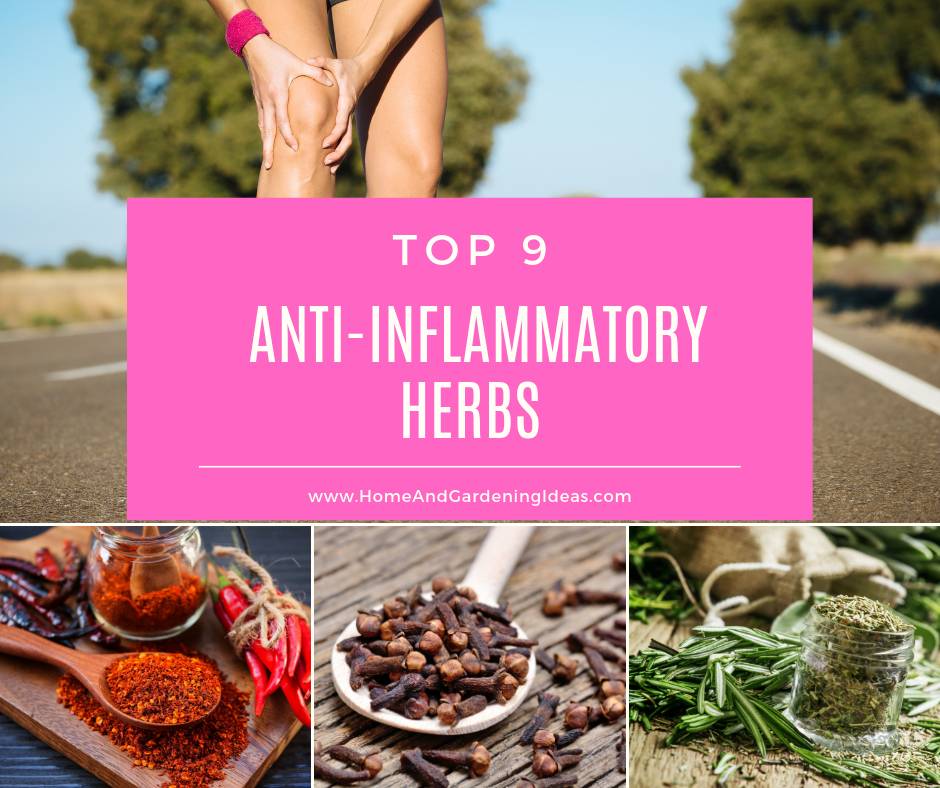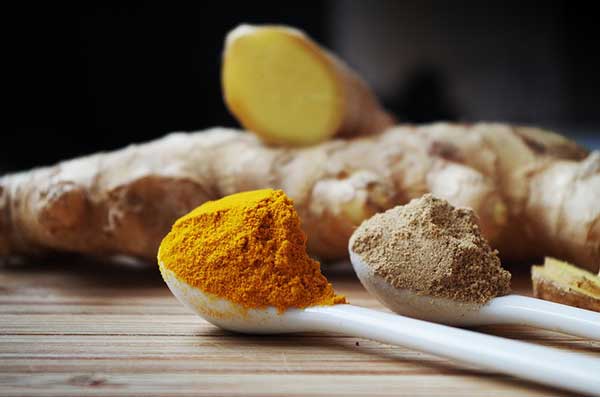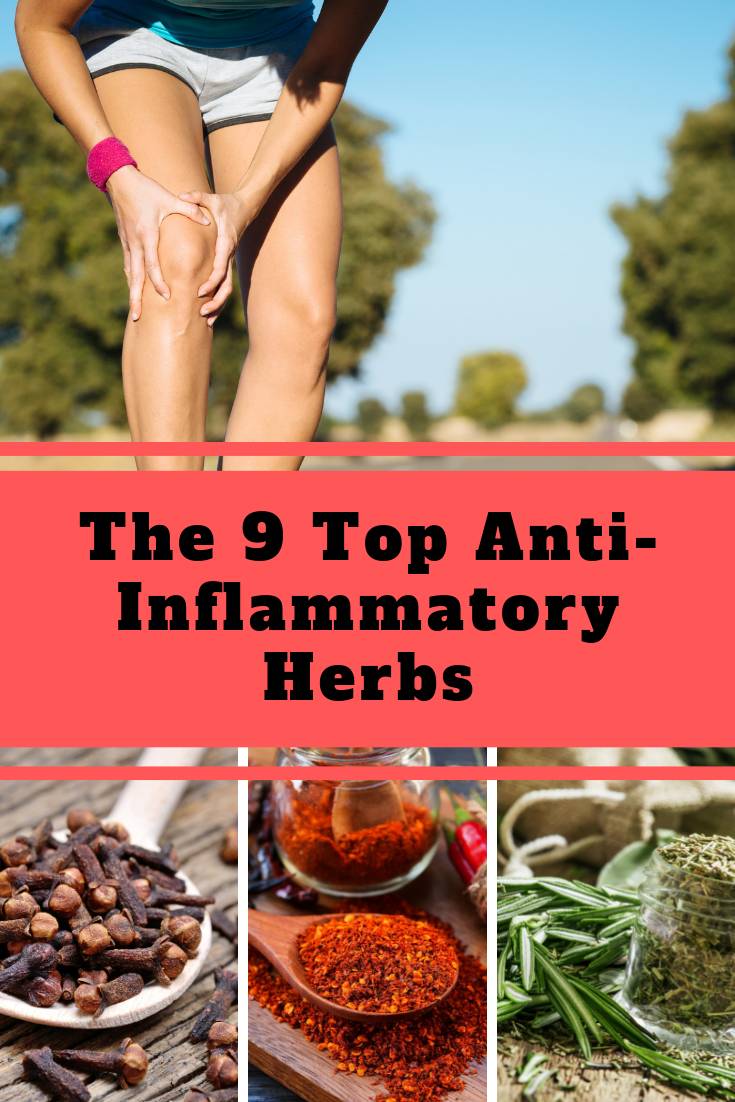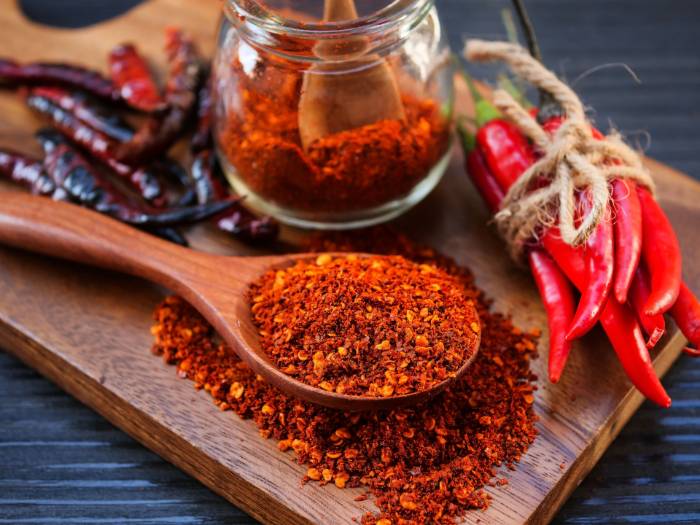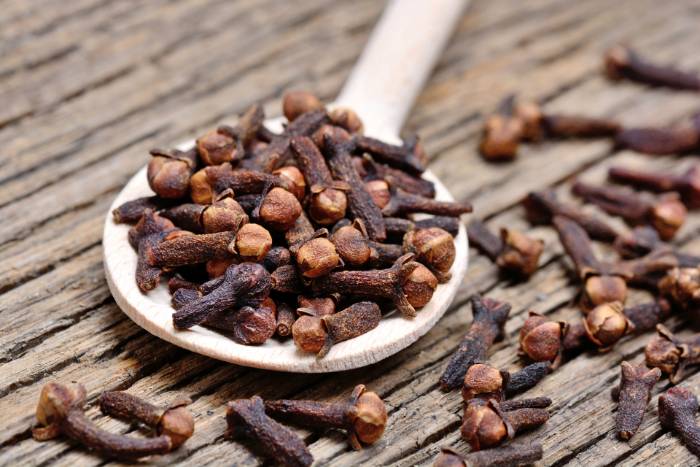The 9 Top Anti-Inflammatory Herbs
While taking medication to reduce inflammation might work, it also does damage to your kidneys or liver. Many herbs have anti-inflammatory properties, giving you the relief that you need without the adverse side effects. Some of the top anti-inflammatory herbs might be in your cabinet right now!
Inflammation is your body’s natural defense mechanisms against infections, wounds, and injuries. For example, if you have a spider bite that becomes infected, you might experience inflammation around the wound. If you twist your ankle, the injury might cause swelling.
While it’s a natural reaction and defense mechanism against further injury, inflammation also can be harmful in some cases. Not only is it painful, but in some circumstances, it can cause further tissue damage.
Anti-inflammatory herbs have natural compounds that can help to reduce inflammation without needing to turn to medication.
The 9 Top Anti-Inflammatory Herbs
1. Turmeric
Turmeric is best known for its use in Indian cuisine. Curry and turmeric go hand in hand, but this bright yellow spice has been used as a medicine to treat wounds, infections, colds, and inflammation. Turmeric treats rheumatoid arthritis, headaches, and even inflammatory bowel disease.
Turmeric works to find inflammation because it has a compound called curcumin, which fights off inflammation in the body.
You can add turmeric to your diet in a myriad of ways, such as adding it to your smoothies or grain bowls. A lot of people like to make what they call “golden milk,” which is like a golden latte with milk, maple syrup, vanilla, turmeric, and black pepper. 5 Turmeric Tea Recipes – Amazing Health Benefits
2. Ginger
You might use ginger to kick a bellyache, but this spice has been a traditional medicine to use for headaches, infections, and inflammation. Herbalists consider ginger a universal drug that can attack inflammation and pain, fight fatigue, soothe sore muscles, and kick a sore throat. That doesn’t even cover its digestive power.
You can use powdered ginger, or purchase a fresh root in the grocery store. Ginger tea is a popular way to take the herb as well.
3. Garlic
Garlic is one of the most revered herbs for medicinal properties. Not only can you use it to fight infections, but you can use garlic for its anti-inflammatory properties to ease arthritis symptoms or joint pain.
The other great thing about garlic is that there are so many ways to take advantage of its properties. Add fresh garlic to any savory dish that you love to boost its flavor and sprinkle in some health benefits. Make an oil of garlic by cooking minced garlic in olive oil and straining out the garlic. 15 Clever and Surprising Uses for Garlic
4. Cinnamon
Who doesn’t love a bit of cinnamon in their lives? Chances are you’ve added cinnamon to dozens of your baked treats, cakes, and more. Cinnamon is more than just a delicious additive for recipes. Evidence shows that cinnamon has anti-inflammatory properties that can reduce swelling.
In Ayurvedic herbal preparations, cinnamon is used to enhance the bioavailability of other herbs. Its antioxidant properties help to reduce the likelihood of cellular damage and chronic diseases. Cinnamon can block growth factors associated with abnormal cell growth, so it’s thought to protect against cancer as well.
You can add some cinnamon to your coffee or tea. Sprinkle some on your oatmeal or breakfast cereal.
5. Cayenne Pepper
Cayenne peppers and other hot chili peppers are praised for their health benefits for centuries. All chili peppers, no matter which ones you selected, have natural compounds called capsaicinoids. Those compounds are what give cayenne peppers their anti-inflammatory properties.
You can use cayenne pepper for wounds and infections, as well as swelling. So, you can make pastes and poultices out of it, or add a few dishes to your favorite recipes.
6. Black Pepper
Is cayenne pepper too spicy for your liking? If so, black pepper is the milder choice with known nait-inflammatory properties. In fact, despite not being as spicy as other peppers, black pepper is known as the “king of spices” because of its fantastic flavor along with its multiple properties, such as antibacterial, antioxidant, and anti-inflammatory benefits.
Luckily, using black pepper is exceptionally easy. You can put it in almost any dish that you eat. You can even purchase black pepper essential oil!
7. Clove
You probably know that you can use clove to help treat a painful tooth, but did you know that clove can be used as an expectorant as well? Clove can be used to treat upset stomach, nausea, and inflammation in your mouth and throat. Evidence tells us that clove’s anti-inflammatory properties help to calm inflammation throughout the body.
You can add powdered clove into baked goods as well as savory dishes, such as soups and stews. Clove can be added to your favorite desserts and even pudding! Some like to infuse clove into hot drinks, such as hot tea or cider. Clove essential oil can be used to teeth an inflamed tooth.
8. White Willow Bark
White willow bark has excellent anti-inflammatory properties because of its combination of compounds. It contains salicin, a compound that is similar to aspirin, which is known to reduce pain and inflammation. Sometimes, white willow bark is referred to as nature’s aspirin because it’s properties are so similar.
These properties are so well known that we know Hippocrates recommended white willow bark as a remedy for gout and rheumatic joint diseases. Native American healers used willow bark for its analgesic properties.
9. Rosemary
The scent of rosemary is calming and relaxing. Over the centuries, rosemary has been used as a culinary herb as well as folk medicine. Rosemary contains rosmarinic acid, which is a compound that has anti-inflammatory, antioxidant, and antimicrobial effects.
In some studies, the use of rosmarinic acid can slow or stop the progression of arthritis. It also is thought to boost the immune system and improve blood circulation.
You can add rosemary to your dishes. Rosemary bread or rolls go lovely with dinner. Sprinkle rosemary over your chicken, add some rosemary to your herbal teas, or make a tincture. Some people prefer to use rosemary essential oil.
 Home and Gardening Ideas At home and Gardening ideas we believe inspiring readers about homesteading, self sufficiency
Home and Gardening Ideas At home and Gardening ideas we believe inspiring readers about homesteading, self sufficiency
